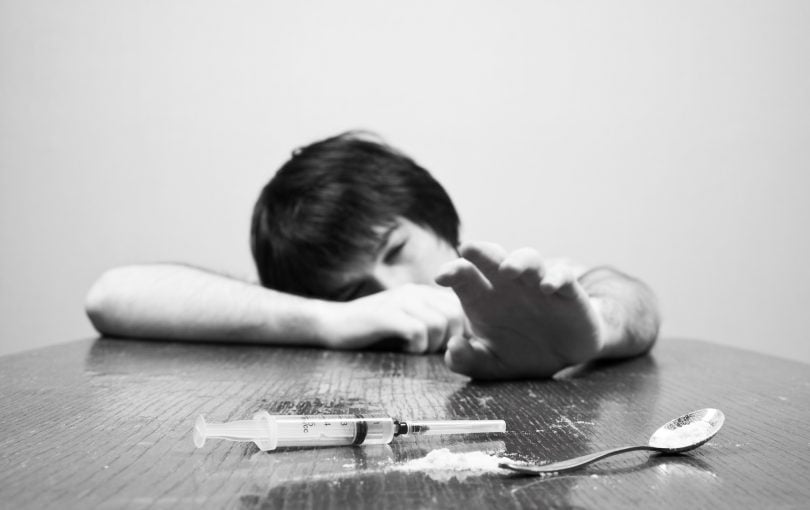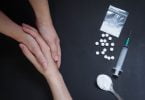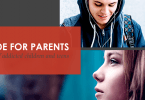When teens abuse drugs, the whole family is affected. Parents stress over the health of their children, younger children may not understand what’s happening and older ones may react negatively.
Any parent would want to know the signs of drug use in teens out of pure concern or because they worry that their teen is at risk for abusing drugs.
If you want to help your teen and catch addiction before it starts, read on to learn how.
Signs Of Drug Use In Teens
It’s important to note that seeing one of these signs doesn’t mean that your teen is abusing drugs. Your teen may simply be feeling stressed, anxious, or could be experiencing a host of other feelings.
This is why you should always try to talk to your child first before you start wondering about drug use. Suspicious behavior could be easily resolved with a simple talk.
It can be easy to worry about drug use, but sometimes you may not be jumping to conclusions.
If you notice your teen displaying these behaviors, it may be time to take action and protect your child.
Sudden Changes In Interest
It’s natural for kids to pick and choose different hobbies. One year your kid may be all about doing choir, then the next they’re tired of music and only want to focus on sports.
A natural progression from hobby to hobby is normal, but the abrupt loss of interest in a once held dear interest may be a sign of drug use.
The time your child used to devote to their hobbies may now be devoted to doing drugs with friends. They may be unable to focus on things when they’re under the influence and may actually be physically unable to do their hobby.
As we said, sometimes the answer may not be drug use. They may have simply lost interest in the hobby, could be avoiding a friend, or may just be feeling fickle.
Regardless of the reason, pay close attention to your teen if you notice a sudden drop in once beloved hobbies and activities.
Sudden New Questionable Friendships
Childhood and teenage friends come and go. People can fight, interests can diverge, and it’s normal to grow apart from people they may have been close with.
Losing a friend or two isn’t unusual. In some extreme cases, a big fight or misunderstanding could cause someone to lose touch with an entire friend group.
An entirely new group of friends may not be out of the ordinary, but you should pay close attention to how they act.
Does it seem like your teen is reluctant to introduce their friends or try to reduce your interaction with them? Do you only see their friends coming and going at strange times? Are your teen and friends secretive about what they do together?
It’s possible that your kid may be feeling a little normal teenage embarrassment about their parents, but it’s also possible that they may be hiding drug use.
Strange And Questionable Objects
Did you just find spray paint and WD-40 cans in your teen’s bedroom? Have you noticed burnt pieces of tinfoil in their bedroom trash can?
It may a coincidence that you find some of these things in your teen’s bedroom, or it could be a sign that they’re abusing drugs.
You’d be surprised at how many everyday objects could be used to do drugs. Soda cans, apples, and even spoons can be used to abuse substances.
The DEA has a very helpful drug paraphernalia identification tool that can help you identify any suspicious objects you find.
Changes in Behavior
Teens and mood swings seem like they go hand in hand, but some behavior may be signs of drug use.
There are some out of the ordinary behaviors that are associated with drug use. Signs of meth use and stimulants are jittery, paranoid, or agitated. While acting sluggish, confused, and sleepy can be signs of opiate abuse.
Your teen doesn’t have to be displaying classic symptoms associated with drug abuse to be using. They could seem unusually calm, distracted, or even happy and giddy.
Inappropriate emotional displays can also be a sign of drug use. Weeping or becoming angry at not having a favorite dinner or giggling when you mention something bad happening to a friend could be a sign that your teen is high.
Unexplained Money Needs And Missing Items
All of the sudden it seems like your child needs more money. They may have a part-time job or a substantial allowance, but it seems like they’re always short on cash.
Drugs can cost a lot of money, and it’s not like your child is supporting themselves with fulltime work. Needing money and not being able to provide a reasonable explanation could be a sign that they’re spending money on drugs.
Missing personal items that belong to the family or your teenager could be a sign that they’re selling things for drug money. It may be something small like video games, or it may be something big like expensive jewelry or a family keepsake.
Physical Signs Of Teens Abusing Drugs
Any of the above behaviors could be easily attributed to something else, but physical symptoms of drug abuse are difficult to question.
If you notice any of your teen displaying these signs or symptoms, they may be abusing drugs:
- Bloodshot eyes
- Dilated or constricted pupils
- Frequent nosebleeds
- Changes in appetite
- Sudden weight loss or weight gain
- Sudden lack of attention to personal appearance or hygiene
- Unexplained injuries, bruises, or scars
- Strange smells on breath, body, or clothing
- Shakes or tremors
- Incoherent or slurred speech
- Impaired moved and frequent stumbling or tripping
If you suspect that your teen is under the influence of drugs, you can purchase an over the counter drug test to confirm your suspicions.
Next Steps
Now that you know the signs of drug use in teens, it’s time to ask yourself some hard questions.
Do you have reasons to believe that your teen is using drugs after reading this list? If the answer is yes, we’re here to help.
Contact us today at (877) 322-2450, so we can talk about any of your questions and concerns. We will help you figure out the best way to help your teen.


















